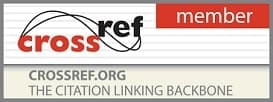2021, Vol. 4, Issue 1, Part C
Clinical efficacy of beta-sitosterol as adjuvant therapy for the treatment of tuberculosis in children
Author(s)
Dr. Umesh Kumar and Dr. Rajesh Kumar Singh
Dr. Umesh Kumar and Dr. Rajesh Kumar Singh
Abstract
Introduction: Clinical investigations of childhood tuberculosis (TB) and treatment are challenged by the paucibacillary nature of the disease and serious side effects of standard anti-TB drugs. An adjuvant therapy may facilitate the efficacy and downgrade the occurrence of side effects associated with long-term therapy.
Introduction: Clinical investigations of childhood tuberculosis (TB) and treatment are challenged by the paucibacillary nature of the disease and serious side effects of standard anti-TB drugs. An adjuvant therapy may facilitate the efficacy and downgrade the occurrence of side effects associated with long-term therapy.
Objective: To investigate the efficacy of beta-sitosterol (BS) as adjuvant therapy to standard anti-TB drugs in children with TB.
Methods: Children in the age range of 6 to 18 years who were diagnosed with TB are enrolled in this randomised clinical study. Enrolled childrens were divided into two groups to receive either BS or placebo. Sputum and blood samples were collected after every month to assess the level of infection (Positive or negative) and evaluation of different blood related complications, respectively. Adverse events were evaluated in each patient and noted.
Results: BS adjuvant therapy resulted in an early negative test for TB as compared to placebo therapy. Significant difference was noted in the patients positive for TB test from month 3 to 6. Furthermore, the BS group showed greater improvements on radiological examination than the placebo group. Comparing the BS group to the placebo group, the BS group showed improvements in hemoglobin, haematocrit, neutrophil count, serum globulin, creatinine, and urea. The overall treatment completion rates were higher in the BS-therapy group than the placebo group with comparatively lower incidence for side effects such as hepatotoxicity.
Conclusion: Adjuvant BS with standard anti-TB drug therapy had the same impact on early infection mitigation and side effect incidence as standard therapy in children aged 6 to 12. to 18 years. Treatment completion was higher in the adjuvant group than the placebo group and was also safer.
Pages: 141-143 | Views: 1152 | Downloads: 539

How to cite this article:
Dr. Umesh Kumar, Dr. Rajesh Kumar Singh. Clinical efficacy of beta-sitosterol as adjuvant therapy for the treatment of tuberculosis in children. Int J Paediatrics Geriatrics 2021;4(1):141-143. DOI: 10.33545/26643685.2021.v4.i1c.144






